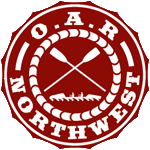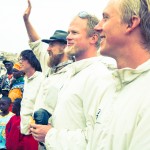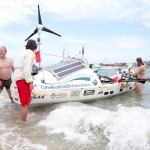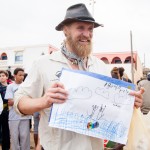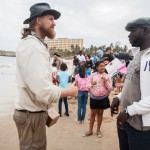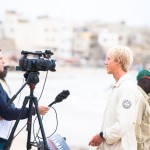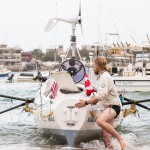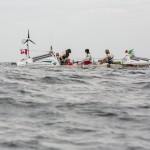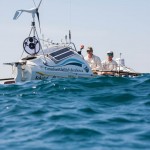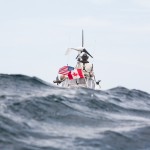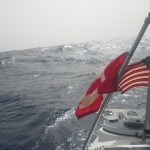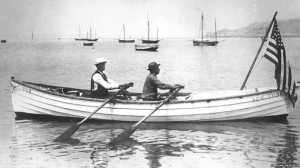
It’s impossible to be in such a slow moving boat and not think about who has come before us. Our experience seems so much like theirs in a few ways, and so completely different in most. One of the biggest differences is that we know where we are going, know that Miami really does exist, and we have just chosen the most backward (figuratively AND literally) way of getting there for the simple reason that it is a harder way to do it.
Today we have options for travel across the sea: airplanes, large ships. Taking to sea without a motor or sail seems so primitive. That being said, we have some incredible technology on the boat… GPS, water maker, science equipment measuring dissolved oxygen, pH, chlorophyll content, etc… Stuff that may as well be magic to people less than 100 years ago. Without this technology, would our trip be “unsafe” or even “impossible”? The fact is, people before us have done much more with less. However, as I wipe a thick layer of salt from my eyebrow with my swollen and calloused hands, I feel like I can almost touch their memory.
[Visit our ‘History’ education modules to learn more about early ocean explorers!]
I doubt anyone will remember this journey too far into the future in any historical sense. For us, our families, the incredible support crew, sponsors, and those watching us online, we hope this will be an amazing memory. However, we are not on a Columbus-type adventure or on a trip to the moon that I suspect will impact a national memory (I guess we can all dream). That being said, what I think is important, and more importantly where we fit into the history of cross-ocean travel, is the fact that we are out here to see this for ourselves. Sure, you can look at a map and figure out the ocean is blue, but it’s another thing to see a hundred subtle shades for yourself. We see the neon colors of Portuguese man o’ war, dorado and marlin beneath us that do not seem as vibrant when I see them on the menu. We have chosen a mandate to take this intimate personal experience of something that is new to us, and try and build with all of our science equipment and research projects on the millions, if not billions of hours humans have put into trying to understand the sea.
I would hope that when you’re learning about our trip – whether it be about history, science, the boat or the body – that this will not be the end of your own educational and exploratory journey. You could spend a lifetime at the library, Internet, and classroom scouring the whole of human knowledge… and that would not be time wasted. I hope what this does most is spark your curiosity to go out and experience it for yourself and to take it with you for the rest of your life. Your perspective is different, and because of that it is valuable. We hope you learn a lot from this trip but we also don’t want you to just take our word on it.
Go to YourWildAdventure.ca and join the ‘100 day challenge’ to get outside and log it for yourself, and share it with us. You’d be surprised what you’ll find in your own back yards.
